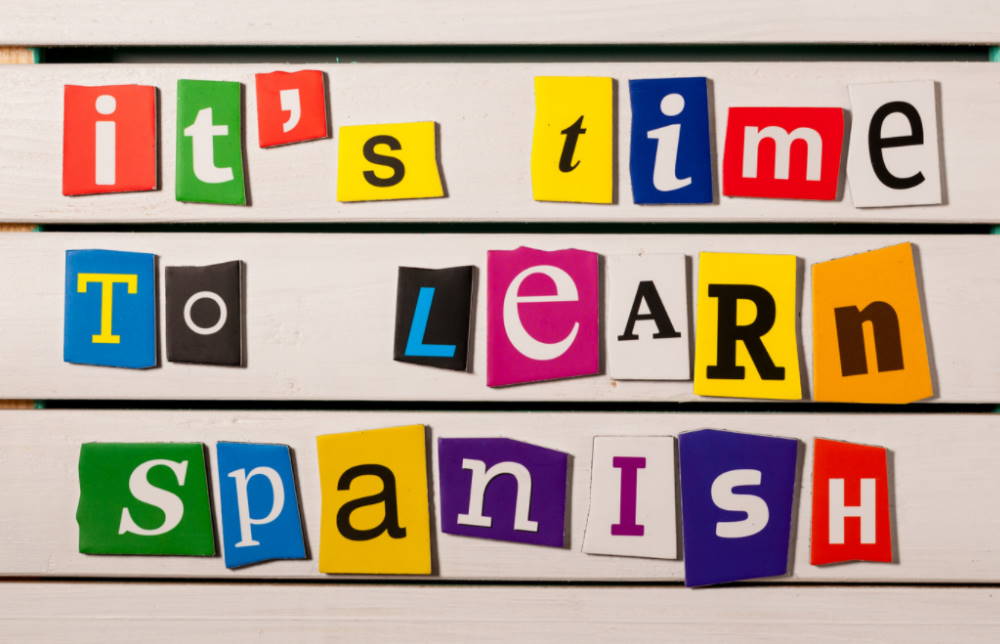
Learning Spanish for Beginners: How to Start
- Categories TIPS FOR LEARNING SPANISH
- Date 2 June, 2021
You may already be aware that Spanish is one of the most important languages in the world. In case you didn’t know, Spanish has the second highest number of native speakers, just after the Mandarin Chinese.
There are around 400 million individuals that speaks Spanish natively. So, it is no surprise that so many others want to start learning it! Mastering the Spanish language offers many opportunities (think careers, studies and/or travel).
At TLCdénia, we receive tons of emails from students all over the world who want to know how to start learning Spanish for beginners.
Many of these people have never learnt a foreign language, but also many of those who contact us say something like: “I learnt some Spanish when I was at school, but I don’t remember any of it and I would like to learn it again”.
Here you must take the following into account: if you have forgotten everything you learned at school, it is more than likely that you never really learned it.
Do not forget to check our Spanish courses for beginners.
The one thing you must have to learn Spanish
Any effort to learn a new language must start with the right motivation.
If you want to succeed in speaking Spanish, then you must ask yourself why you want to learn Spanish. If your only reason to learn Spanish is that you are “just interested”, you are likely to fail.
Why? Because interest comes and goes. Most of us go through periods in which we are interested in a particular activity, and a few days, weeks or months later, we move on to something else.
Here are some good reasons to start learning Spanish:
- You need it to develop your professional career.
- You are planning to move to Spain or Latin America.
- Your partner is a Spanish speaker and you would like to communicate easily with his/her family.
- You plan to take a course with a component that requires you to be able to communicate in Spanish.
Why are these reasons better than “interest”? Easy: there is no more important motivation than necessity: when you need to speak a language, you will do anything to learn it.
Make sure your friends and family know that you are pursuing the Spanish language. Let those closest to you hold you more accountable with questions like: “Hey, how are you doing with your Spanish?” These types of questions will keep you on your toes and prevent you from giving up!
Compile your own list of Spanish-language resources
Before you start learning Spanish for beginners, you need to get an idea of the resources available. We recommend you spend some time researching all the products (books, videos, courses, etc) out there. Read reviews to see what works and learn about the methodology of the materials you find.
The market is currently totally flooded with resources for learning Spanish. Compared to other languages, there is a huge amount of material for learning Spanish for beginners.
While it’s great to have so many resources at your fingertips, we are also aware that it can be overwhelming. It is often difficult to know which resources are quality and which are not.
In the end it will depend very much on your learning style.
We recommend that you make a list and classify it: a simple and quick document in which you will indicate the resources and their respective categories.
For example: you can create the category “Youtube”, where you can list the most useful YouTube channels you have found or the category “grammar” and list some of the best resources you have found to learn Spanish grammar in depth.
Another quick and easy tip: look for a cheap phrasebook (preferably with audio). This is often a great tool to invest your money in.
Make a list of everything you need to have a basic conversation in Spanish.
It is obvious that as a beginner, you will first need to learn the most essential words and phrases (including numbers) as well as the most common forms of Spanish greetings.
Common examples:
- ¡Hola! – Hello
- ¿Cómo estás? – How are you?
- Mi nombre es… – My name is…
- Encantado (Mucho gusto) – Nice to meet you
- ¿Cómo se dice… en español? – How do you say… in Spanish?
- No entiendo (No sé) – I don’t understand (I don’t know)
You probably recognize or are familiar with some of the above. Even many people who have never studied Spanish are familiar with many of these expressions without realizing it.
It is important that you get to grips with these basic aspects of the language to start having basic conversations with Spanish speakers.
It is important to always keep your main motivation in mind: if you want to learn Spanish for a professional purpose, you don’t want to waste time learning content more suited to tourists and families. Remember to focus on the content that interests you the most!
You may also like

More About the Spanish Accent

Tips for Fast Progress in Spanish for Beginners

